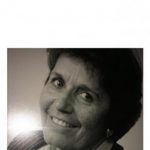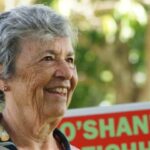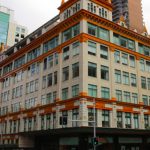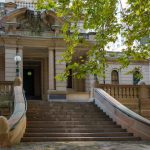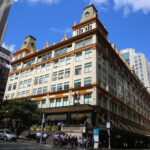For the First Time, an Indigenous Woman Has Been Appointed as an Australian Supreme Court Judge
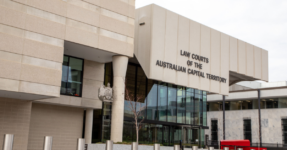
Louise Taylor has been appointed as a judge to the Supreme Court in the Australian Capital Territory, making her the first Indigenous woman to be appointed to a Supreme Court in Australia.
Ms Taylor’s appointment is an historic moment for the representation of indigenous people in the judicial system in Australia, but not an historic first for her career.
Ms Taylor joins Honourable Chief Justice Lucy McCallum, Justice David Mossop, Justice Chrissa Loukas-Karlsson, Justice Belinda Baker and Justice Verity Alexandra McWilliam on the ACT Supreme Court Bench. She will be sworn in within the next few weeks.
Pioneering lawyer
Louise Taylor was born and raised in Sydney, although the Kamilaroi woman’s family originally came from the New England area of New South Wales.
She studied law in the ACT, and was admitted to practice as a solicitor and barrister in 2001.
Ms Taylor has been employed as a prosecutor with the ACT’s Office of the Director of Public Prosecutions (DPP) as well as with with the Commonwealth Office of the DPP.
She also worked as a Legal Aid lawyer and has maintained a strong interest in social justice for women throughout her career.
The pioneering lawyer made history in 2018 when she became the first Aboriginal person to be appointed as a judicial officer in the Australian Capital Territory, and it is hoped she will be the first of many Indigenous women to sit on the bench of the highest courts in Australia.
Career achievements
In 2009, Ms Taylor was named the ACT Woman of the Year, recipient of the ACT International Women’s Day Award. She is also a past member of the ACT Domestic Violence Prevention Council and the former Chair of the ACT Ministerial Advisory Council on Women.
In 2019, she was awarded the Indigenous Alumna of the Year Award from the Australian National University in recognition of her contribution to Aboriginal and Torres Strait Islander rights and access to justice for women.
She has also spent 10 years as the Chair of the ACT Women’s Legal Centre.
One of the significant highlights of JudgeTaylor’s career was her work on the inquiry into the conviction of David Eastman, which ultimately set him free, after he had been wrongly convicted of murder.
David Eastman Inquiry
David Eastman was a former public servant from Canberra, Australia, who in 1995, was wrongfully convicted of the murder of Australian Federal Police Assistant Commissioner Colin Winchester and was sentenced to life imprisonment without parole.
In 2014 a judicial inquiry, which Louise Taylor worked upon, was headed by Justice Brian Martin, whose final report noted that:
“A substantial miscarriage of justice occurred in the applicant’s [David Eastman] trial. The applicant did not receive a fair trial according to law. He was denied a fair chance of acquittal. The issue of guilt was determined on the basis of deeply flawed forensic evidence in circumstances where the applicant was denied procedural fairness in respect of a fundamental feature of the trial process concerned with disclosure by the prosecution of all relevant material.”
The findings of the inquiry recommended the sentence be quashed and David Eastman be pardoned.
Later the same year, David Eastman’s conviction was quashed and a retrial was ordered. Mr Eastman was subsequently found not guilty in the second trial. He had served 19 years in custody and was awarded A$7 million in compensation.
“I’m very proud to accept this appointment.”
Just last year, Queensland appointed the first ever Indigenous Supreme Court judge, Warramunga man Lincoln Crowley, who at the time said it was “remarkable” that it had taken so long for a First Nations person to be appointed to the position.
This week, Ms Taylor, said she was “honoured” to have the privilege to serve the community.
“I’m conscious of the significance of it and I’m very proud to accept this appointment.”
“This is, of course, a very proud day for my family and I, and I hope a very proud day for First Nations people, in particular First Nations women,” she said.
According to figures published by the Law Society Journal while more women are joining the legal profession, making up 53 percent of solicitors nationally, numbers collated in 2020 show that only 632 solicitors across the country identified as Aboriginal and/or Torres Strait Islander, representing 0.8 per cent of the profession.



